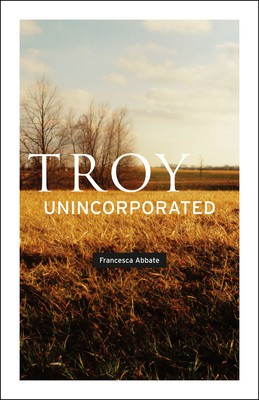
- We will send in 10–14 business days.
- Author: Francesca Abbate
- Publisher: University of Chicago Press
- Year: 2012
- ISBN-10: 0226001202
- ISBN-13: 9780226001203
- Format: 14 x 21.3 x 0.8 cm, minkšti viršeliai
- Language: English
- SAVE -10% with code: EXTRA
Reviews
Description
A meditation on the nature of betrayal, the constraints of identity, and the power of narrative, the lyric monologues in Troy, Unincorporated offer a retelling, or refraction, of Chaucer's tragedy Troilus and Criseyde. The tale's unrooted characters now find themselves adrift in the industrialized farmlands, strip malls, and half-tenanted "historic" downtowns of south-central Wisconsin, including the real, and literally unincorporated, town of Troy. Allusive and often humorous, they retain an affinity with Chaucer, especially in terms of their roles: Troilus, the good courtly lover, suffers from the weeps, or, in more modern terms, depression. Pandarus, the hard-working catalyst who brings the lovers together in Chaucer's poem, is here a car mechanic. Chaucer's narrator tells a story he didn't author, claiming no power to change the course of events, and the narrator and characters in Troy, Unincorporated struggle against a similar predicament. Aware of themselves as literary constructs, they are paradoxically driven by the desire to be autonomous creatures--tale tellers rather than tales told. Thus, though Troy, Unincorporated follows Chaucer's plot--Criseyde falls in love with Diomedes after leaving Troy to live with her father, who has broken his hip, and Troilus dies of a drug overdose--it moves beyond Troilus's death to posit a possible fate for Criseyde on this "litel spot of erthe."
EXTRA 10 % discount with code: EXTRA
The promotion ends in 22d.06:37:17
The discount code is valid when purchasing from 10 €. Discounts do not stack.
- Author: Francesca Abbate
- Publisher: University of Chicago Press
- Year: 2012
- ISBN-10: 0226001202
- ISBN-13: 9780226001203
- Format: 14 x 21.3 x 0.8 cm, minkšti viršeliai
- Language: English English
A meditation on the nature of betrayal, the constraints of identity, and the power of narrative, the lyric monologues in Troy, Unincorporated offer a retelling, or refraction, of Chaucer's tragedy Troilus and Criseyde. The tale's unrooted characters now find themselves adrift in the industrialized farmlands, strip malls, and half-tenanted "historic" downtowns of south-central Wisconsin, including the real, and literally unincorporated, town of Troy. Allusive and often humorous, they retain an affinity with Chaucer, especially in terms of their roles: Troilus, the good courtly lover, suffers from the weeps, or, in more modern terms, depression. Pandarus, the hard-working catalyst who brings the lovers together in Chaucer's poem, is here a car mechanic. Chaucer's narrator tells a story he didn't author, claiming no power to change the course of events, and the narrator and characters in Troy, Unincorporated struggle against a similar predicament. Aware of themselves as literary constructs, they are paradoxically driven by the desire to be autonomous creatures--tale tellers rather than tales told. Thus, though Troy, Unincorporated follows Chaucer's plot--Criseyde falls in love with Diomedes after leaving Troy to live with her father, who has broken his hip, and Troilus dies of a drug overdose--it moves beyond Troilus's death to posit a possible fate for Criseyde on this "litel spot of erthe."


Reviews